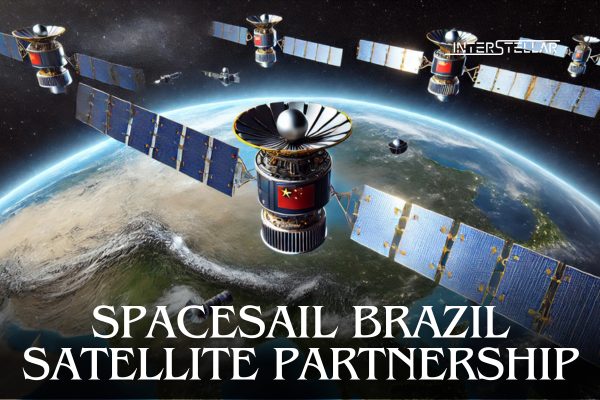China’s SpaceSail Partners with Brazil for Satellite Services
China’s low Earth orbit (LEO) satellite firm, SpaceSail, is stepping up its challenge to Elon Musk’s Starlink by expanding into the Brazilian market. On Wednesday, during Chinese President Xi Jinping’s state visit to Brasilia, the company announced a key agreement with Brazil’s state telecom, Telebras, to provide satellite communications and broadband services across the country.
A Strategic Collaboration with Brazil
The memorandum signed with Telebras marks a significant milestone in SpaceSail’s overseas expansion. This collaboration aims to improve Internet access in Brazil, especially in remote regions where connectivity remains a challenge.
The agreement coincides with Xi Jinping’s meetings with Brazilian President Luiz Inácio Lula da Silva, following the G20 summit in Rio de Janeiro. Both leaders discussed numerous partnerships to deepen ties between their nations.
Competing with Starlink in the Global Market
LEO satellites, which operate at altitudes between 300 km and 2,000 km, offer cost-efficient and effective data transmission compared to satellites in higher orbits. SpaceSail’s Thousand Sails Constellation is at the heart of its efforts. This mega-constellation utilises a multi-layer, multi-orbit design, covering full frequency bands to provide seamless global service.
Starlink, SpaceX’s flagship satellite network, has set a high benchmark with over 6,000 satellites in orbit and a growing global user base. However, entry of SpaceSail into Brazil highlights its ambition to provide competitive alternatives to countries seeking diversified satellite services.
Brazil’s Supreme Court recently froze Starlink’s bank accounts to enforce fines against its owner, Elon Musk, over disputes with the social media platform X. This development adds an intriguing layer to SpaceSail’s entry into the market.
Advancing China’s Space Ambitions
China currently boasts 1,059 satellites in orbit, with 492 designated for commercial purposes, according to state news agency Xinhua. Both private and state-owned Chinese firms are accelerating their LEO satellite launches, aiming to rival Starlink’s dominance through vast constellations.
The agreement also reflects geopolitical dimensions. Chinese military researchers have scrutinised Starlink’s role in Ukraine and warned of its potential risks to China during conflicts involving the US. With SpaceSail’s expansion, Beijing appears determined to enhance its competitive edge in satellite technology and space-based communications.
Meeting Brazil’s Connectivity Needs
Brazil’s Communications Minister, Juscelino Filho, emphasised the importance of this collaboration. “We aim to ensure Brazilian society has access to multiple companies offering essential services, particularly in remote areas,” Filho told CNN Brasil. This partnership could bring new connectivity options to underserved regions in Latin America, fostering technological growth and competition in satellite services.
With inputs from Reuters





